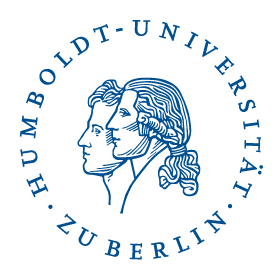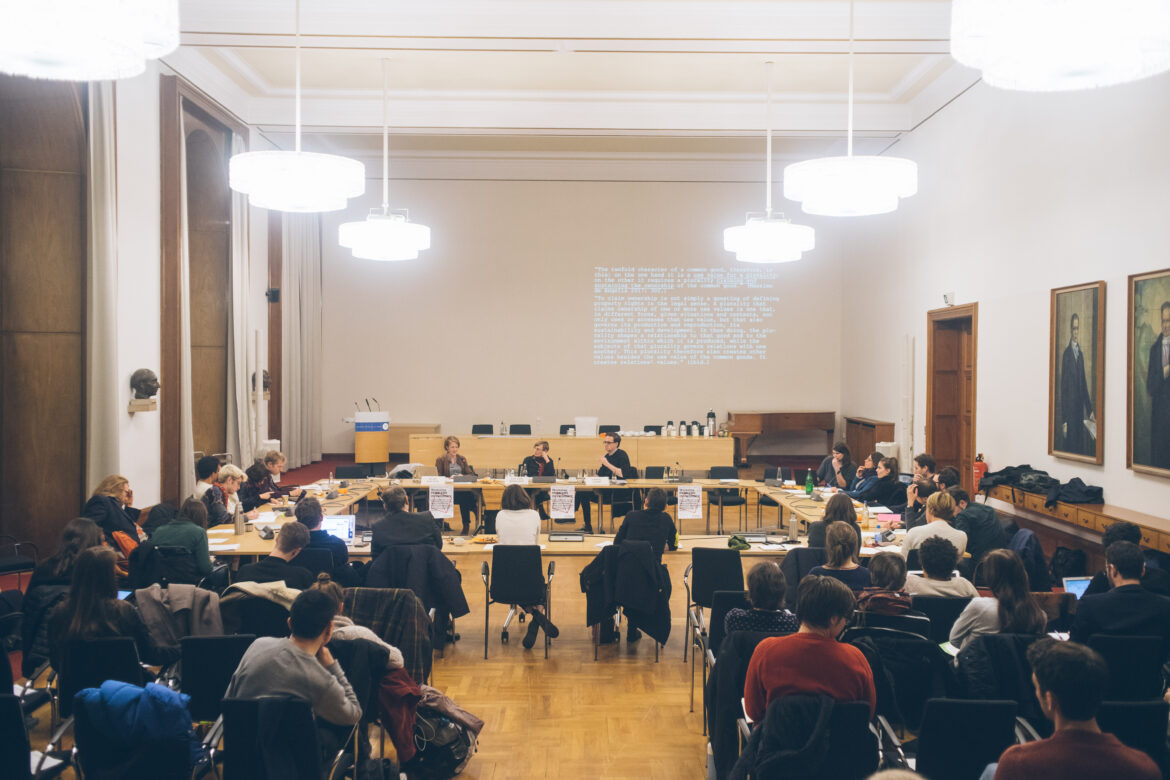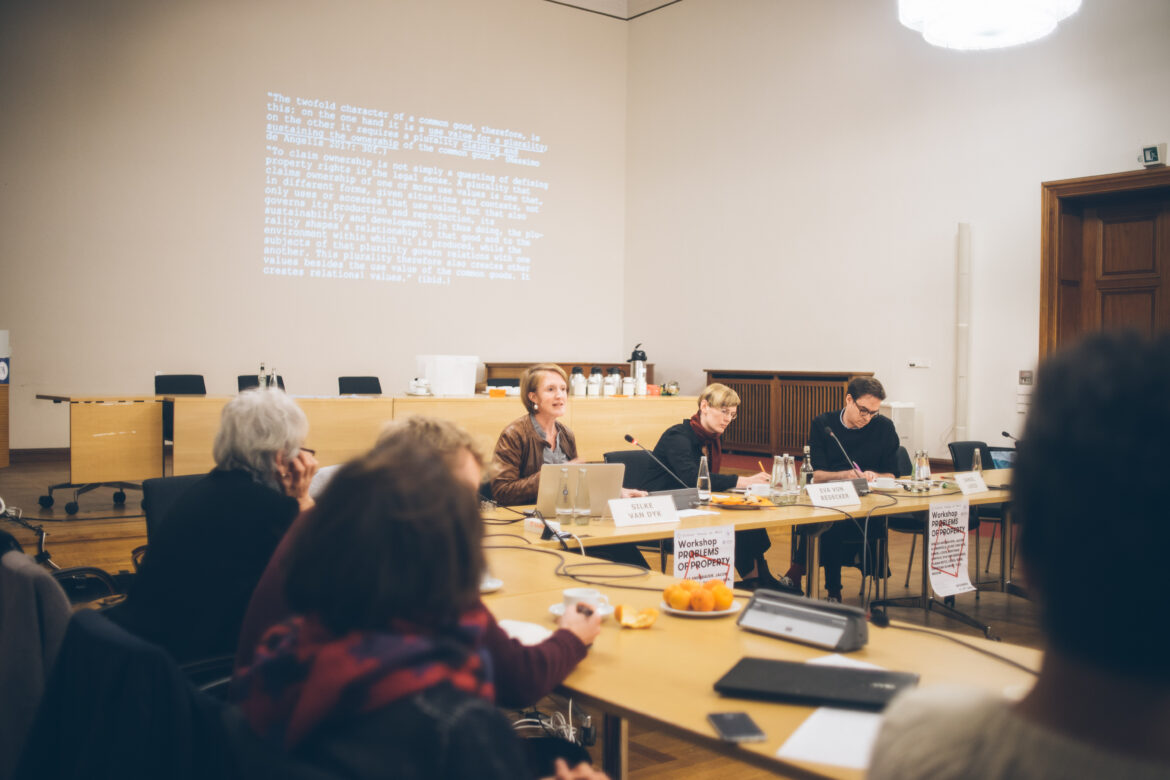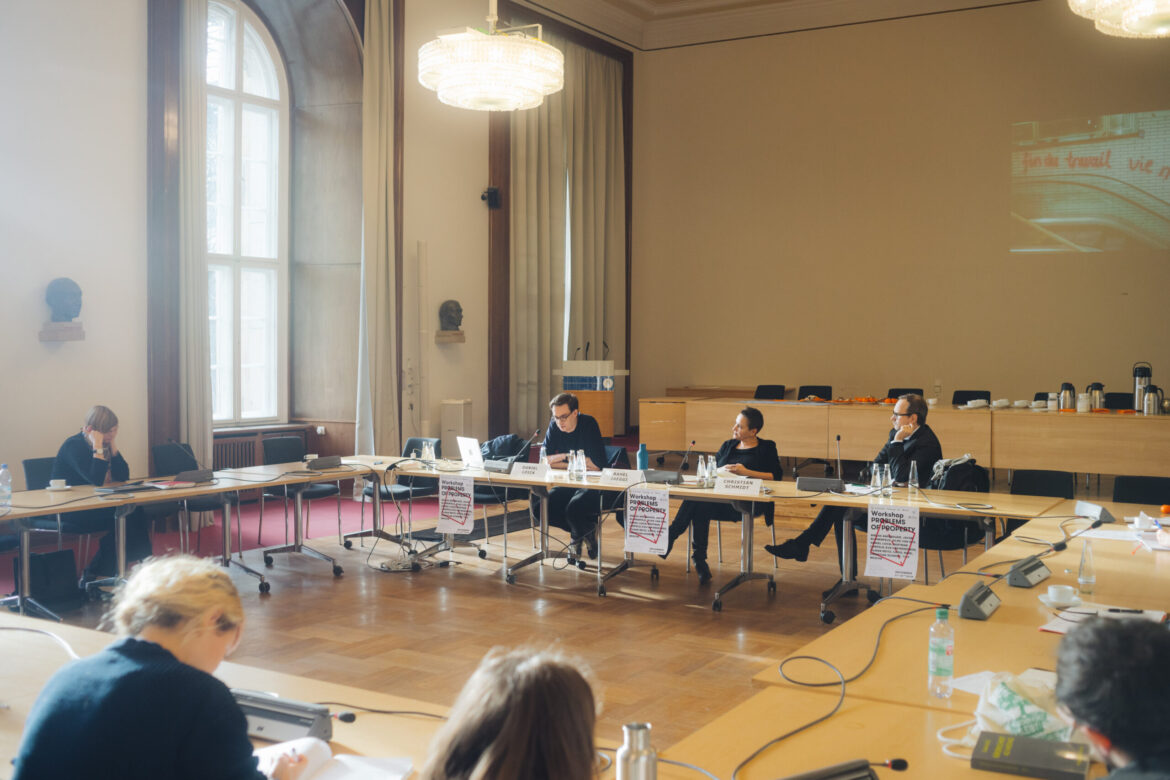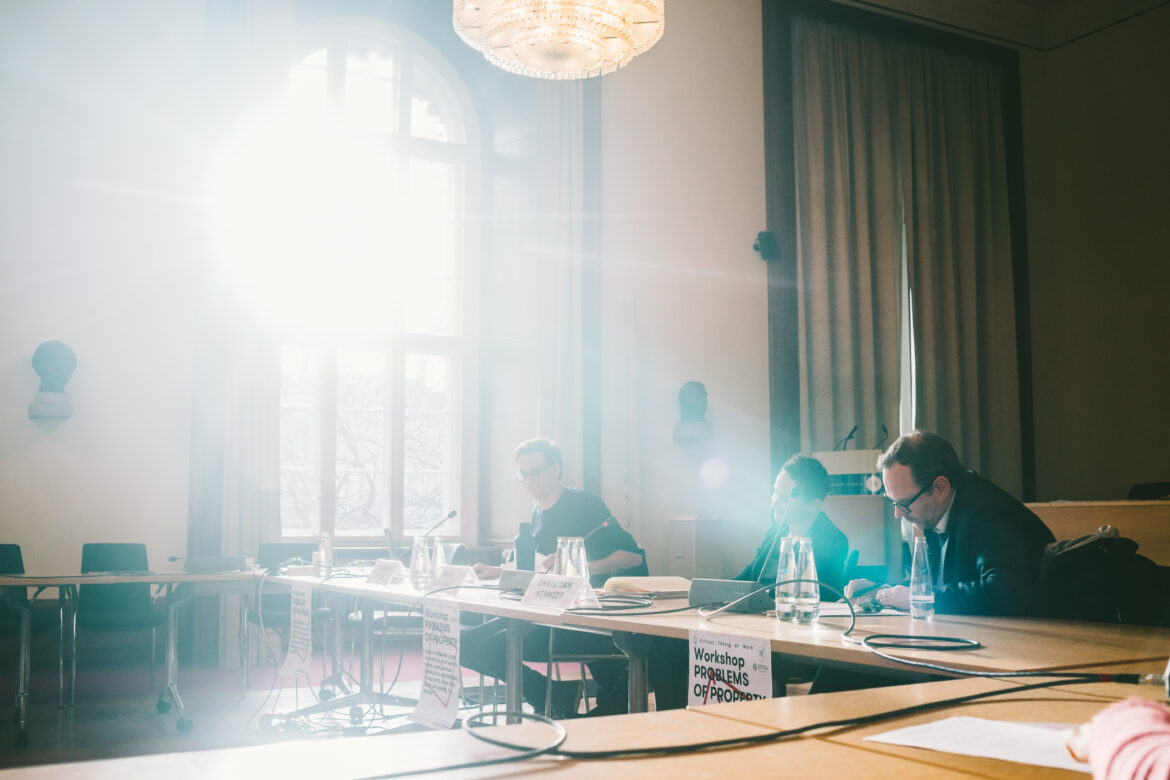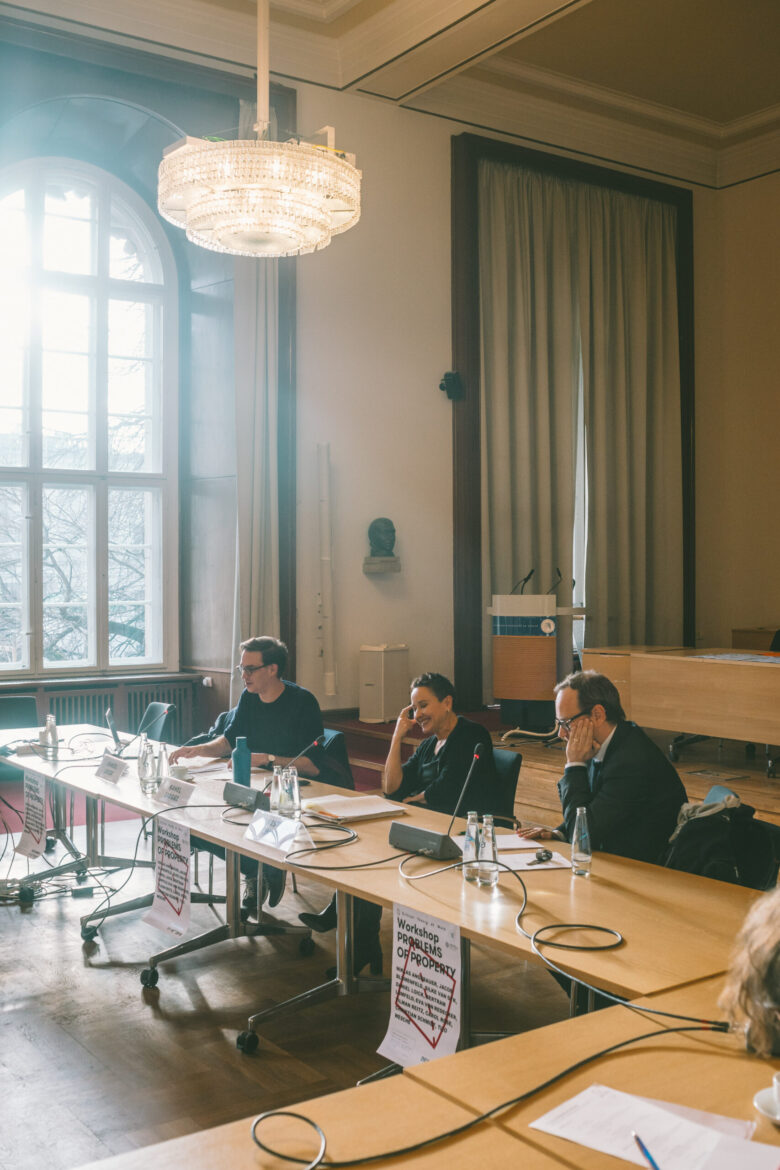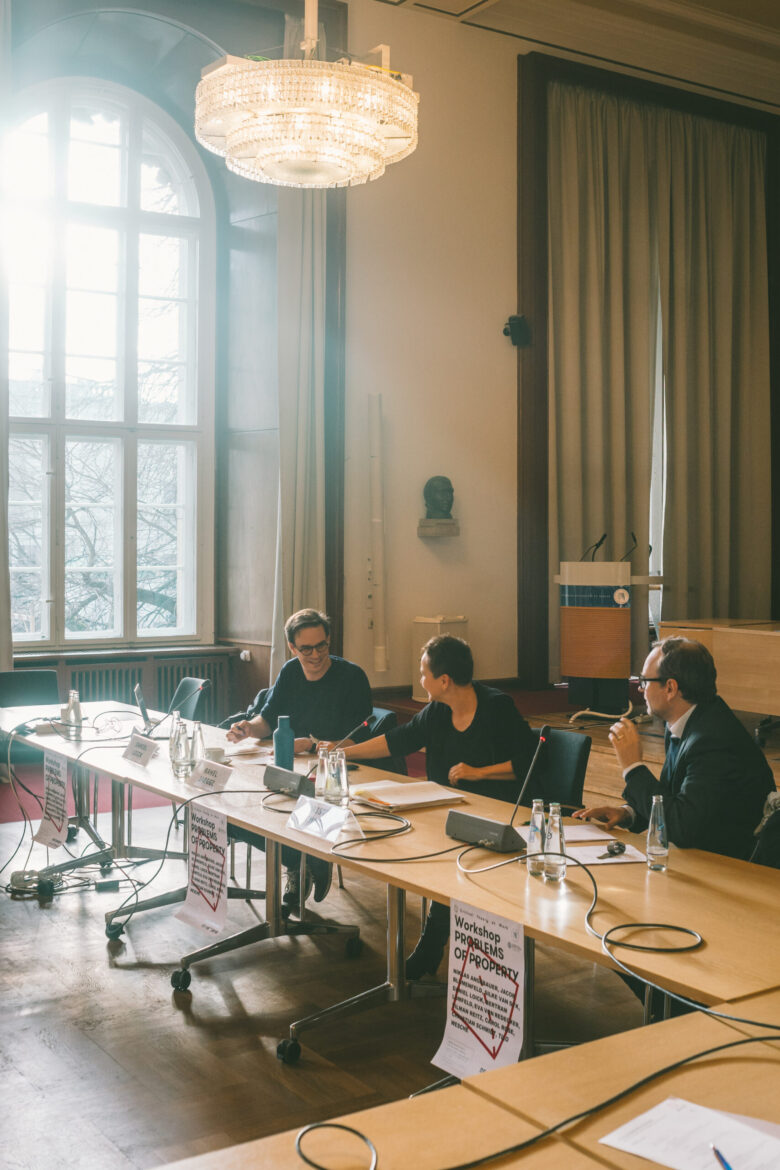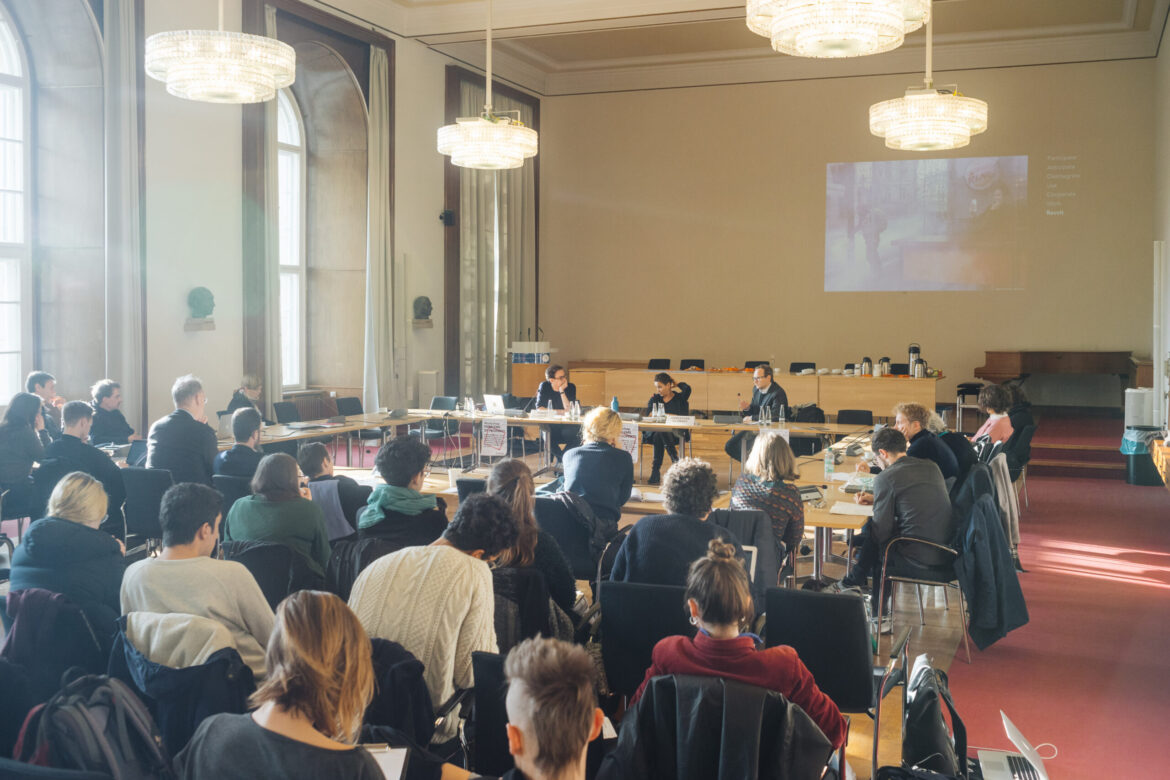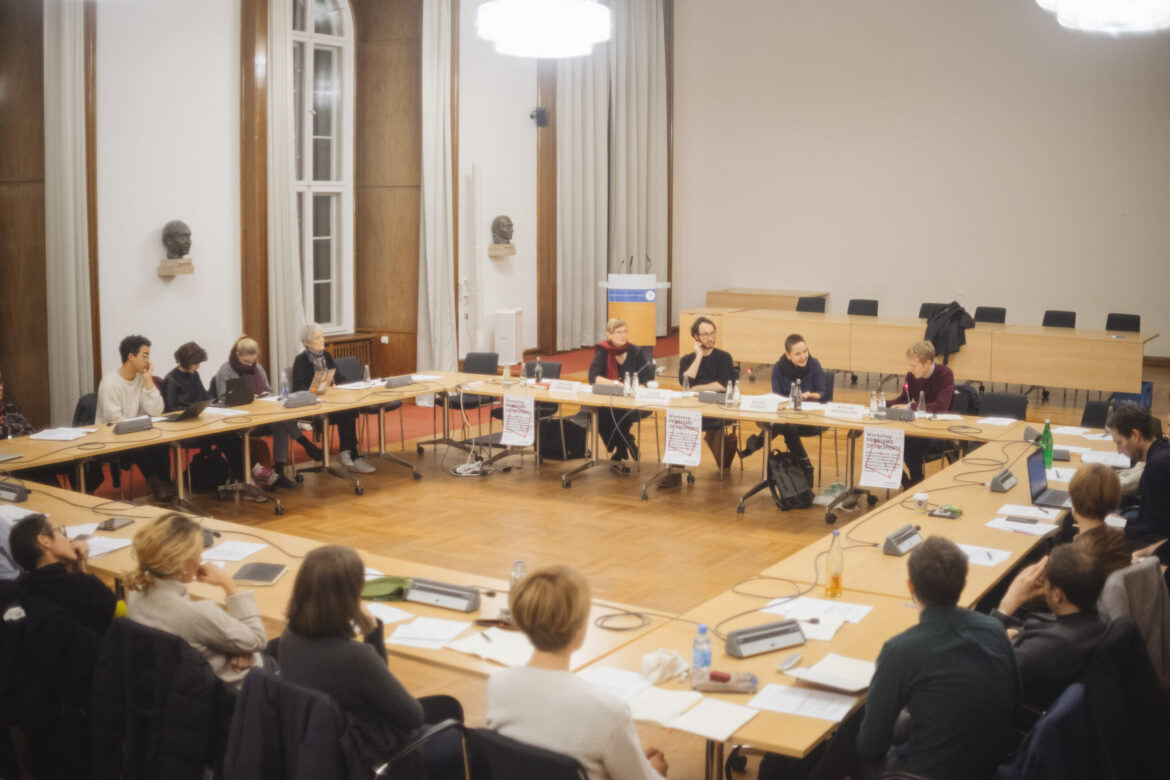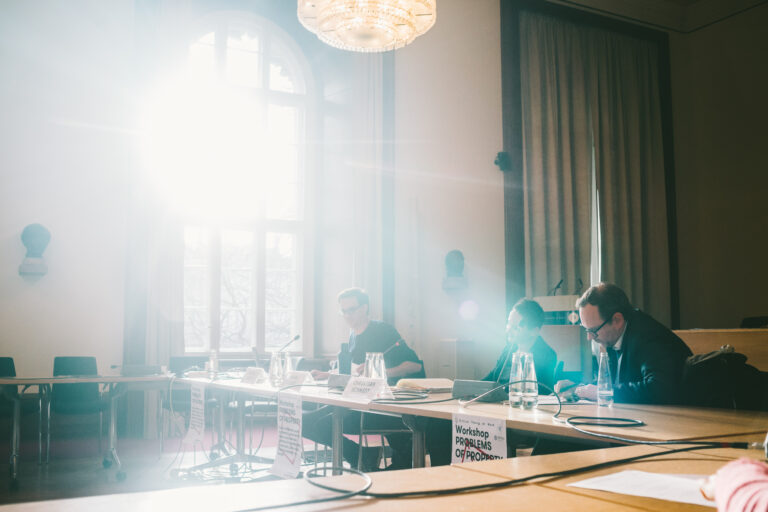Property is a key institution both in the capitalist economy and in liberal political orders. Property law regulates access to material goods as well as symbolic status, it is seen as the foundation for personal liberty and political legitimacy, and it mediates our relation to the world of objects.
While many critical discussions concern the question of the distribution of goods, this workshop investigated problems arising with the specific form and function given to property in modernity.
How to account for the social ontology and societal function of property? What is the genealogy of the modern, Western understanding of property and which shifts can we observe in the present? How paradigmatic are notions of ownership to concepts of personhood and subjective rights? Could the emancipatory potential of property be preserved without prolonging the dispossession and domination implicated by it?
Speakers included: Carol Rose, Silke van Dyk, Daniel Loick, Bertram Lomfeld
Organized by: Rahel Jaeggi and Eva von Redecker (Center for Humanities and Social Change, Humboldt University Berlin)


